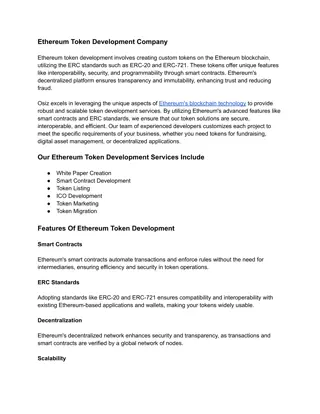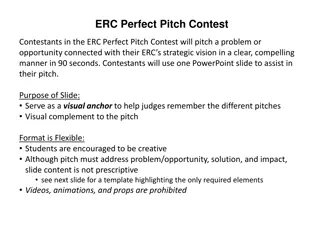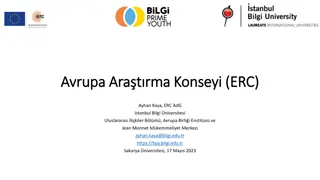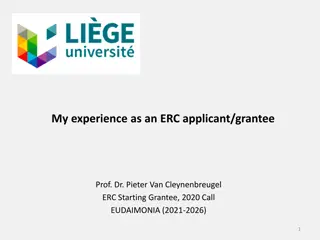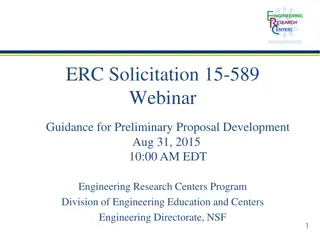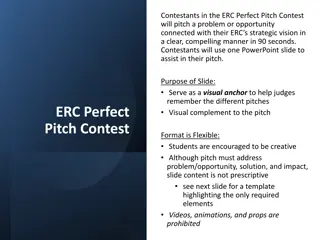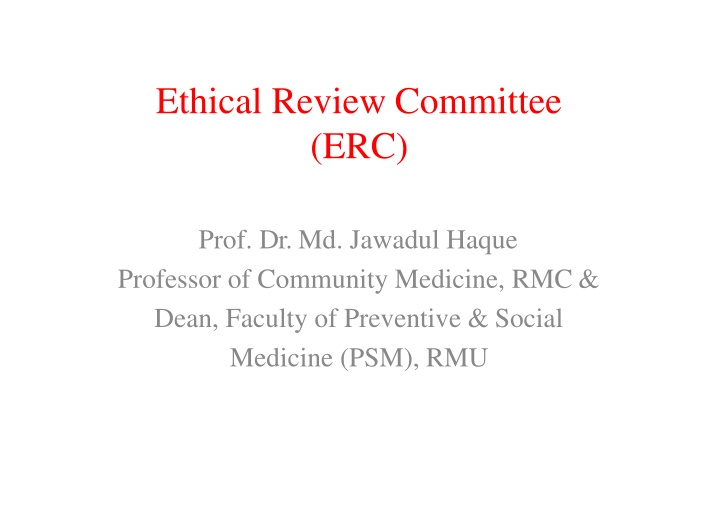
Exploring Ethics in Medicine: Perspectives from the Ethical Review Committee
Delve into the realm of ethics in medicine through the lens of the Ethical Review Committee chaired by Prof. Dr. Md. Jawadul Haque. Discover the fundamental principles of ethics, the significance of bioethics, and the evolving landscape of medical ethics in today's complex healthcare environment.
Download Presentation

Please find below an Image/Link to download the presentation.
The content on the website is provided AS IS for your information and personal use only. It may not be sold, licensed, or shared on other websites without obtaining consent from the author. If you encounter any issues during the download, it is possible that the publisher has removed the file from their server.
You are allowed to download the files provided on this website for personal or commercial use, subject to the condition that they are used lawfully. All files are the property of their respective owners.
The content on the website is provided AS IS for your information and personal use only. It may not be sold, licensed, or shared on other websites without obtaining consent from the author.
E N D
Presentation Transcript
Ethical Review Committee (ERC) Prof. Dr. Md. Jawadul Haque Professor of Community Medicine, RMC & Dean, Faculty of Preventive & Social Medicine (PSM), RMU
Ethics Ethics: Ethics is derived from a Greek word - ETHOS which means moral Def: 1. Moral principles that govern a person s behaviour or of an activity. 2. Ethics(moral philosophy)- It is a branch of philosophythat addresses questions about morality concepts suchas Good and evil Right and wrong Virtue and vice Justice and crime Jawad/ERC/RMU 2
Ethics (contd.) Ethics is a branch of philosophy that deals with morality, standards or values; in fact the whole science of moral principles. Ethics a system of norms, standards or values (Websters New WorldDictionary). Jawad/ERC/RMU 3
Medical Ethics Medical ethics is an applied branch of ethics which analyses the practice of clinical medicine and related scientific research. Four commonly accepted principles of medical ethics : - Principle of respect for autonomy Principles of nonmaleficence (do no harm) Principles of beneficence and Principle of justice Jawad/ERC/RMU 4
Bioethics The study of the ethical and moral implications of new biological discoveries advances, as in the fields of genetic engineering and drug research is bioethics. The term bioethics was introduced in the 70 s by Van Rensselaer Potter for a study aiming at ensuring the preservation of the biosphere. It was later used to refer a study of the ethical issues arising from health care, biological and medical sciences. and biomedical Jawad/ERC/RMU 5
Why Bioethics has Become Important? Nowadays, conflicts of interests between the government and medical institutions, between medical institutions and medical personnel, between physicians and patients are getting more and more serious and complex. High technologies not only brought us hopes of cure but have also created a heavy economic burden. The ethical dilemmas of prescribing high technology medicine, organ transplantation, and concerns about quality of life-have become increasingly prominent. Jawad/ERC/RMU 6
Branches Of Ethics Jawad/ERC/RMU 8
Ethical issues Abortion Human experimentation Birth Control In vitro fertilizations Stem cell technology Homosexuality Euthanasia suicide DNR Determinationof death Cloning Jawad/ERC/RMU 9
Why we need Bioethics in research? In order to achieve smooth progress of research, while preventing exploitation of human subjects It is mandatory that every proposal on biomedical research involving human subjects be cleared by an appropriately constituted institutional ethical committee. The ethics committee is also responsible for regular monitoring of the compliance of the ethical guidelines of the approved protocols, till the same are completed Jawad/ERC/RMU 10
Why we need Bioethics in research (contd)? Field medical research and health care is rapidly expanding. Most medical research is not complete, unless experimentation on human subjects, including children is undertaken. Experimentation on human being is subject to ethical standards that promote respect for all and protect their health and rights. With the rapidly progressing world of biomedical research, there are newer challenges to ethical standards; Jawad/ERC/RMU 11
Why we need Bioethics in research (contd.)? As a result the ethical guidelines are frequently revised. It is widely expected that any new therapeutic, diagnostic or preventive product, that is likely to be used in humans, should undergo adequate safety and efficacy investigations. In order that every research on human subject is planned with a view to cause maximum benefit to the mankind while causing least damage to the research subject, it appropriately constituted approve all the research proposals. is essential ethics that committee an Jawad/ERC/RMU 12
Ethics Committee (EC) or Ethical Review Committee (ERC) or Institutional Ethics Committee (IEC): Most Ethics Committees are formed at the institutional level. The institutional ethics committees have power to Approve a proposal, Reject it or Suggest modifications for approval Jawad/ERC/RMU 14
Membership of ERC Chair person, preferably from outside the institution 2 - 3 basic medical scientists 2 - 3 clinicians from various institutes One legal expert or retired judge One social scientist One journalist One religious leader One lay woman from community Member secretary Jawad/ERC/RMU 15
Responsibility of ERC: To determine; Safety of proposed intervention in humans Scientific soundness of proposed research Ethical correctness of the research Compensation and treatment of the subjects Adequacy of qualification of investigators Good working conditions at the research site To determine the informed consent requirement To maintain records of decisions Jawad/ERC/RMU 16
Ethical Review Procedures: It is mandatory that all proposals on biomedical research involving human subjects should be presented before and Approved by, appropriately constituted ethics committee. Most ethics committees are constituted at the institutional level. Jawad/ERC/RMU 17
TOR of ERC The Objectives and Functions of Ethical Review Committee (ERC) are as follows: 1. ERC is an autonomous and independent committee in regard to its functions and will not be influenced by the administrativeauthority. 2. ERC preserves the full autonomy regarding clearance in respect of ethical aspect of the research proposal. 3. ERC will act as an autonomous technical committee of the research cell of Rajshahi Medical College. Jawad/ERC/RMU 18
TOR of ERC (contd.) 4. ERC will be formed for the duration of 2 (two) years considering a year from July to June and it will be sent to BMRC for its approval each time. 5. ERC will hold a meeting every 4 (four) months regularly and may call urgent meeting any time. 6. Half (50%) of the members presence is needed to fulfill the corium. 7. Scope of modification, if needed in future, is preserved. Jawad/ERC/RMU 19
Functions of ERC: ERC will make comprehensive review of the research proposal submitted to it giving more importance to ethical aspects specially in regards to research design, implication of study to the community, informed written consent confidentiality, dignity and autonomy of the research subjects, benefit and harm to the subject, etc. ERC will review and provide their opinion to all the research proposals that will be done in the Rajshahi Medical College & Hospital or will be done by the researchers of the Rajshahi Medical College & Hospitals. Jawad/ERC/RMU 20
Basic elements of the review by ERC: 1.Ethical aspects of the research with special attention to:- a. Possible benefit and risk of the study subjects, b. Dignity and confidentiality of the study subjects, c. Informed written consent, d. Autonomy of the study subjects, Jawad/ERC/RMU 21
Basic elements of the review by ERC (contd.): e. Community consideration in respect to benefit of the study, f. Culture, customs, belief and religion of the study subjects in relation to study design, g. Care and protection of research participants, h. Ethical aspects in relation to aims and objectives of the study, methodology, utility of the research findings, recommendations, publication plan, researcher s right and right of the research participants, etc. Jawad/ERC/RMU 22
Basic elements of the review by ERC (contd.): 2. Recruitment of research participants. 3.Care and protection of researchparticipants. 4.Protection of researchparticipants confidentiality. 5.Informed consent process. 6.Utility of the research findings. 7.Community consideration. Jawad/ERC/RMU 23
Example of EC of ERC Chairman: Prof. (Dr.) .... Prof. of Physiology, RMC Member: 1. Prof. (Dr.) .., Prof. of Anatomy,RMC 2. Prof. (Dr.) , Professor of Pharmacology, RMC 3. Prof. Dr. .. . Professor of Surgery, RMC 4. Prof. Dr. Professor of Medicine, RMC 5. Prof. Dr. .Professor of Obs & Gynae, RMC 6. Prof. Dr. Prof. of Radiology & Imaging, RMC 7. Prof. Dr. .. Professor of Paediatrics, RMC Jawad/ERC/RMU 24
Example of EC of ERC (contd.) 8. Prof. Dr. .. Professor of Pathology, RMC 9. Prof. Dr. . Professor of Forensic Medicine, RMC 10. Adv. Md. . Govt. Pleader, Judge Court, Rajshahi. 11. Md. , Journalist, Staff Reporter, The Daily Ittefaq,Rajshahi. 12. Mowlana .., Head Imam, Central Jame Mosque, Rajshahi Board, Rajshahi. 13. Mrs. Deputy Director, Social Welfare, Rajshahi. Member-Secretary: Prof. (Dr.) .., Professor of Community Medicine, RMC Jawad/ERC/RMU 25



